A rumor took hold of many Meta advertisers for the past several years. The claim was that you can’t use the words “you” or “your” in your Facebook ads copy without risk of rejection — or worse.
This theory never made sense to me. I use the words “you” and “your” routinely in my ad copy without any concern or repercussion. But, there has to be some reasonable explanation for why so many advertisers believe it to be true.
I decided to do some digging. And as seems to be the case with most of these theories, there is some sliver of truth. But, not surprisingly, how this rule is applied is misunderstood.
In this post, let’s better understand how this rule is applied and provide some examples of what is and is not acceptable for use of the words “you” and “your” in Facebook ads copy.
Prohibited Personal Attributes
I stumbled on this accidentally while researching prohibited personal attributes related to Facebook advertising. Here is the important passage:
Note that you can use the words ‘you’ or ‘your’ as long as your ad doesn’t mention any prohibited personal attributes and complies with our Meta Advertising Standards.
Here’s the full quote…

Let’s back up. Meta doesn’t allow advertisers to assert or imply the personal attributes of the targeted audience. Here’s the list of prohibited personal attributes:
- Race
- Ethnicity
- Color
- National origin
- Religion
- Age
- Sex
- Sexual orientation
- Gender identity
- Family status
- Disability
- Medical or genetic condition
- Physical or mental health (including medical conditions)
- Vulnerable financial status
- Voting status
- Membership in a trade union
- Criminal record
- Name
The problem with using “you” or “your” is when it implies that you know that the targeted audience has a connection to one of these personal attributes. You can’t suggest that you know that someone has a disability, has a medical condition, has a criminal record, or is having financial difficulties.
When you do, this is when ads get especially creepy and problematic.
Examples
Let’s go over some examples of uses of “you” and “your” that could get you in trouble, coming from Meta’s own documentation.
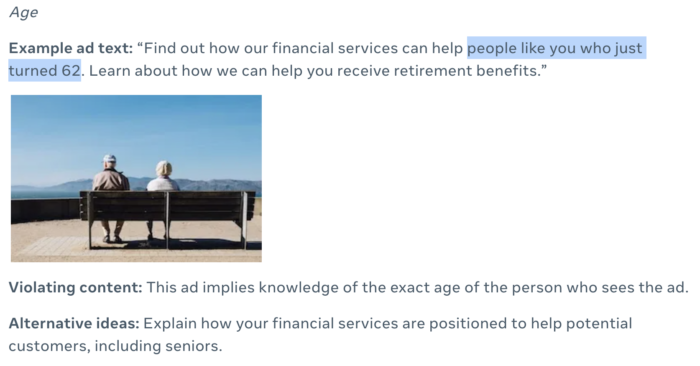
In the example above, you can’t assert or imply that you know that the targeted person is 62. That’s why using the phrase “people like you” is an issue. You can still highlight your services and how the business helps seniors, but you need to do so without suggesting you know their age.
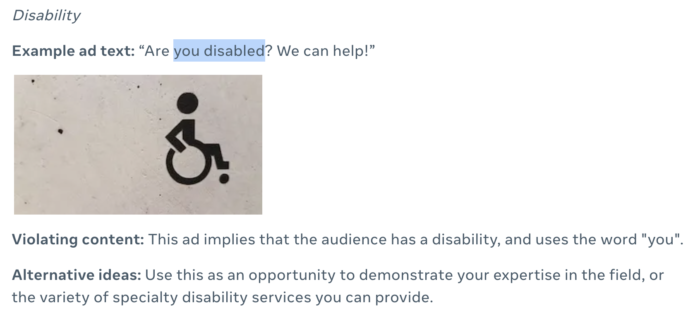
Even though the copy is framed in the form of a question, the use of “you” along with a prohibited personal attribute is a violation. Instead, highlight how your service benefits those with disabilities without suggesting the targeted person has a disability.
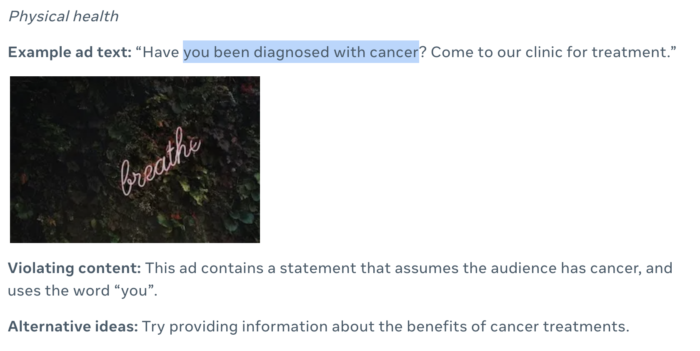
Similar to the example above, do not suggest or ask whether the targeted person has a medical condition. Instead, focus on your services.
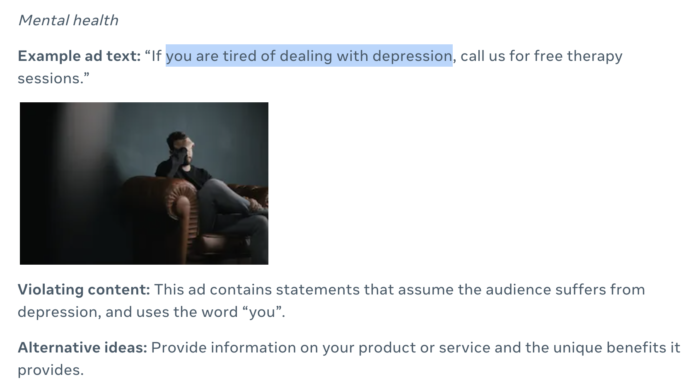
In this example, the copy would be fine if it simply read “Call us for free therapy sessions.”
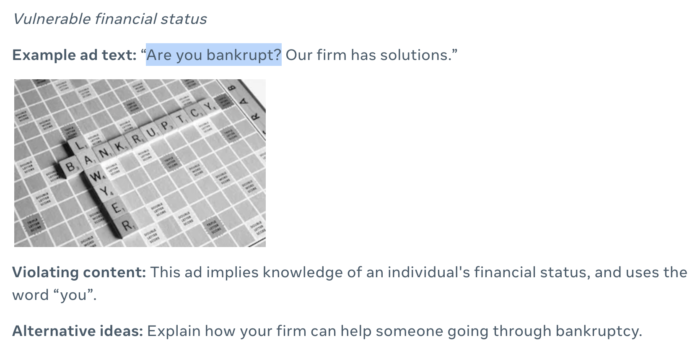
Again, it’s rather simple. Don’t personalize this. “Our firm has solutions to bankruptcy.” Highlight those solutions.
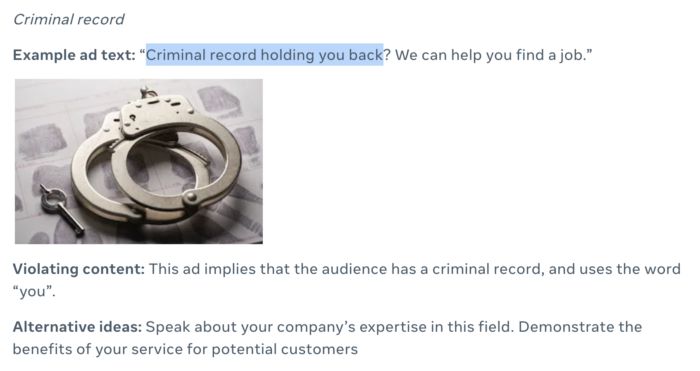
Instead of asking the targeted person whether they have a criminal record, focus on how your business helps those with a criminal record find a job.
“You” and “Your” are Normally Fine
As you read through the above, the common theme is that “you” and “your” are being used with sensitive issues. Avoid that.
There are bound to be gray areas to avoid. But that doesn’t mean you need to write awkward sentences and throw these words out entirely.
Here are some examples where it would be fine…
Are you hungry?
Are your Facebook ads performing badly?
Do you like to dance?
Do you have your tickets to the game yet?
Save your seat at this conference.
Your dreams have come true.
Do you need a plumber?
When we go through what’s not allowed, it can feel like it’s difficult to write copy that doesn’t violate terms. But as you can see, you just can’t use “you” and “your” in sensitive copy related to prohibited personal attributes.
Watch Video
I did record a video on this, too. Check it out…
Your Turn
Have you run into issues using the words “you” and “your” in Meta ads copy?
Let me know in the comments below!






